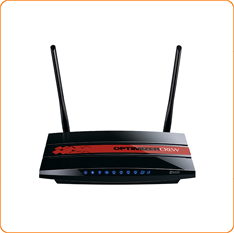 With satellite broadband terminals like Iridium Pilot, Inmarsat FleetBroadband, and VSAT Mini-V3, satellite internet access is possible - and affordable! - while at sea. But satellite being satellite, it’s not like you’re paying $50 a month for unlimited broadband. Satellite is still pricey enough that you probably don’t want to go buck wild with your satellite airtime plan.
With satellite broadband terminals like Iridium Pilot, Inmarsat FleetBroadband, and VSAT Mini-V3, satellite internet access is possible - and affordable! - while at sea. But satellite being satellite, it’s not like you’re paying $50 a month for unlimited broadband. Satellite is still pricey enough that you probably don’t want to go buck wild with your satellite airtime plan.
And while you may be imminently aware of how much each MB costs, what happens if you invite a guest for the weekend? Or if you have crew or passengers onboard? You don’t want them opening up Skype, downloading Windows updates, or watching YouTube on your satellite airtime tab.
With that in mind, here are 7 ways to share your marine satellite internet (or simply use it yourself) without breaking the bank.
This one seems so simple that you’d be surprised how many people simply don’t password-protect their WiFi routers. If you’re using RedPort Optimizer you can easily set a password on the router. This way you won’t have that sketchy sailor in the slip next to you using up your airtime without you wanting, and it also allows you to selectively choose who can access your internet. This is the first step to sharing your marine satellite internet - make sure you’re in charge of who you’re sharing with by password-protecting your satellite WiFi.
 This is the only way to completely separate out your family/guests/friends/crew airtime consumption from your own airtime bill. Prepaid voice calling cards allow people to purchase their own airtime. Your guests can pick up your satellite phone, enter in their PIN-code for their prepaid minutes and then go to town - on their bill, not yours.
This is the only way to completely separate out your family/guests/friends/crew airtime consumption from your own airtime bill. Prepaid voice calling cards allow people to purchase their own airtime. Your guests can pick up your satellite phone, enter in their PIN-code for their prepaid minutes and then go to town - on their bill, not yours.
The catch here is that these types of PIN-codes for prepaid calling only exist with the Iridium Pilot. Iridium Pilot GoChat Cards are used with Iridium Pilot (you must have an active postpaid Iridium OpenPort plan in place in order for your guests or crew to use GoChat cards).
![]() It’s very simple to purchase individual XGate satellite email accounts. You can direct your guests or crew to pick out the subscription length that works before them and then they simply have to WiFi connect to your satellite broadband unit (you will need an Optimizer or Optimizer Crew for this). This doesn’t remove you completely from paying for their airtime usage, since all the email they do will consume your satellite airtime. But since XGate compresses email up to 95% of its original size, this is a very low-risk way for your to share your satellite internet and not run too much of a risk of high airtime bills because of their consumption. (That being said, make sure to ask your crew/guests not to send or receive gigantic attachments. XGate's BigMail will catch a lot of these, but a tech savvy crewmember or guest could get around these controls).
It’s very simple to purchase individual XGate satellite email accounts. You can direct your guests or crew to pick out the subscription length that works before them and then they simply have to WiFi connect to your satellite broadband unit (you will need an Optimizer or Optimizer Crew for this). This doesn’t remove you completely from paying for their airtime usage, since all the email they do will consume your satellite airtime. But since XGate compresses email up to 95% of its original size, this is a very low-risk way for your to share your satellite internet and not run too much of a risk of high airtime bills because of their consumption. (That being said, make sure to ask your crew/guests not to send or receive gigantic attachments. XGate's BigMail will catch a lot of these, but a tech savvy crewmember or guest could get around these controls).
 Optimizer Crew is like the Optimizer, but beefed up and full of features the regular Optimizer doesn’t provide. One of the great features of Optimizer Crew is the ability to create free PIN-codes (or access codes) that you can then give or sell to guests or crew. A PIN-code might, for example, limit your guest to 5 MB of data usage until they’re kicked off the network. This way you can control how much access your guests or crew have to the internet while allowing them the freedom to do whatever they want with those 5 MB (although you can set filters on the router itself - say, by blocking all access to YouTube, for example).
Optimizer Crew is like the Optimizer, but beefed up and full of features the regular Optimizer doesn’t provide. One of the great features of Optimizer Crew is the ability to create free PIN-codes (or access codes) that you can then give or sell to guests or crew. A PIN-code might, for example, limit your guest to 5 MB of data usage until they’re kicked off the network. This way you can control how much access your guests or crew have to the internet while allowing them the freedom to do whatever they want with those 5 MB (although you can set filters on the router itself - say, by blocking all access to YouTube, for example).
When you create PIN-codes on Optimizer Crew you not only set a data limit (5 MB, 10 MB, etc) you can throttle the bandwidth, too. This means that the internet will go slower for them, which will limit what they can do over it (perhaps completely eliminating their ability to use data-hungry services such as Skype, for example). This also assures that you’ll have bandwidth available for your needs.
One of the add-on services for Optimizer Crew is ship-wide compression. This means that anyone accessing the internet to do anything will benefit from RedPort compression that will speed up connections (and decrease airtime costs) by a factor of 3 to 5.
 For large-scale installations like Inmarsat FleetBroadband 500s on an “all you can eat” plan, or large VSAT installations, using RedPort VoIP services can significantly drive down airtime costs for voice calls. Typical VoIP protocols use 50 kb per minute. RedPort VoIP services uses 6 kb per minute. In terms of data consumption, this means that typical VoIP protocols give you 2 minutes of talk time per MB, whereas RedPort VoIP services get you 20 minutes of talk time per MB.
For large-scale installations like Inmarsat FleetBroadband 500s on an “all you can eat” plan, or large VSAT installations, using RedPort VoIP services can significantly drive down airtime costs for voice calls. Typical VoIP protocols use 50 kb per minute. RedPort VoIP services uses 6 kb per minute. In terms of data consumption, this means that typical VoIP protocols give you 2 minutes of talk time per MB, whereas RedPort VoIP services get you 20 minutes of talk time per MB.
If you need some advice about how to best save your airtime dollars while sharing your satellite broadband internet at sea, please don't hesitate to get in contact with us. From single cruisers to cruise ships - we have the experience and know-how to advise you on the best, and most affordable, option for your particular needs.
